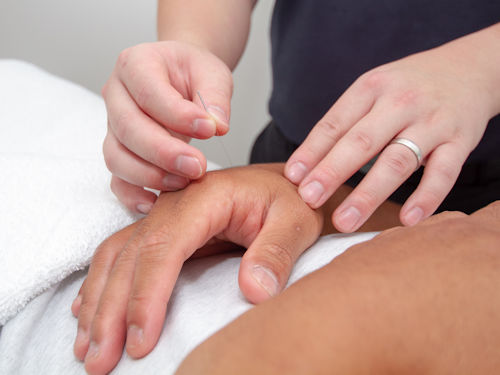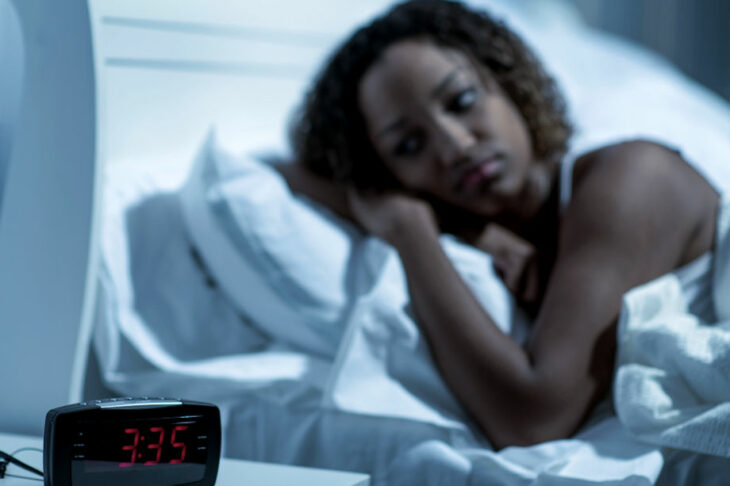Insomnia – the thief of a good night’s sleep, can take a toll on our physical and emotional health, leading to a reduced quality of life. When counting sheep, hot milky drinks, or the best-intended advice of friends and family doesn’t work, the frustration compounds, leaving you weary and desperately trying to catch some z’s.
There is good news though! By exploring a variety of strategies, including lifestyle changes, natural supplements and science-based treatments like Acupuncture, sleep can become a restorative and enjoyable part of your life once more. This comprehensive guide offers eleven impactful tips to resolve insomnia – backed by current research and practical application. Remember, dealing with insomnia isn’t just about getting more hours of sleep – it’s about improving the quality and duration of your sleep and, by extension, enhancing your overall quality of life.
Understanding Insomnia
Insomnia, one of the most common sleep disorders, is a complex condition marked by persistent trouble falling asleep, staying asleep, or waking up too early, with sleep deprivation affecting daily life. But what really lurks behind those restless nights?
Sleep is regulated by an intricate dance of biochemical, hormonal, and neurological processes. When these are in harmony, restful sleep follows. However, disruptions to any part of this complex system can lead to insomnia. Stress, anxiety, poor sleep hygiene, lifestyle factors, certain medical conditions, or even changes in your environment can tip the balance, resulting in sleepless nights.

Contrary to the occasional night of poor sleep that we all experience, chronic insomnia is characterised by sleep disturbances occurring at least three nights a week for a minimum of three months. It’s more than just feeling tired. Persistent insomnia can significantly impact your mood, energy, productivity, and overall health. Understanding insomnia is the first step towards resolving it.
Tip 1: The Power of a Regular Sleep Schedule
Our bodies are remarkably attuned to patterns and rhythms – including sleep. A regular sleep schedule aligns with our body’s natural circadian rhythm, a kind of internal clock that follows a 24-hour cycle. This rhythm influences our sleep-wake cycle, hormone production, digestion, and more. By maintaining a consistent schedule, you program your body to expect and prepare for sleep at certain times. Whether you are an early bird or a night owl, consistency is key. Aim to go to bed and wake up at the same time every day, including weekends. Regularity can encourage your body to naturally wind down as bedtime approaches and wake up more refreshed.
Tip 2: Your Bedroom – A Sleep Sanctuary
Creating an environment conducive to sleep can greatly improve your sleep quality. Your bedroom should be quiet, dark, and cool. Consider using earplugs or a white noise machine to block out noise. Light, especially blue light from electronic devices, can interfere with your body’s production of melatonin, a hormone that regulates sleep. Consider using heavy curtains, blackout shades, or an eye mask to keep your bedroom dark. The temperature of your room also matters. A cooler room is often more conducive to sleep because our body temperature naturally drops as we prepare for sleep. Finally, make your bed as comfortable as possible. Invest in a good quality mattress, pillows, and bedding suited to your personal preferences.
Tip 3: The Delicate Balance of Daytime Naps
Daytime naps, while refreshing, can be a double-edged sword. Short naps, lasting about 20-30 minutes, can enhance mood, alertness, and performance. However, long or frequent naps can interfere with your nighttime sleep, especially if you’re struggling with insomnia. By keeping naps short and early in the day, you’re less likely to interfere with your nighttime sleep. If you find that napping causes you to wake up groggy or makes it harder to fall asleep at night, consider dialling back on the daytime snoozes.
Tip 4: Physical Activity: A Natural Sleep Aid
Physical activity has a host of health benefits, and improving sleep is a major one. Regular exercise can help you fall asleep faster, sleep more deeply, and wake feeling more energetic and refreshed. The reason? Exercise promotes biochemical changes that counter stress hormones and stimulate the production of sleep-promoting substances in the brain. However, timing is important. Working out too close to bedtime can interfere with sleep due to the stimulating effect of exercise. Aim to finish moderate to vigorous workouts at least 3 hours before bed.
Tip 5: Manage Your Mind: The Stress-Sleep Connection

Our minds are powerful – and can either be conduits for peaceful sleep or the source of restless nights. Stress, anxiety, and worry can significantly interfere with sleep. One way to combat this is by incorporating stress-reducing activities into your routine. Techniques like mindfulness, meditation, and deep breathing exercises can help you calm your mind, while cognitive-behavioural therapy can provide strategies for managing stress and anxiety. Regular physical activity also plays a key role in reducing stress levels. Writing in a journal, consulting with a therapist, or talking things over with a friend are also powerful methods to help you manage your stress.
Tip 6: Mindful Eating for Better Sleep
What you eat and drink can impact how well you sleep. For example, caffeine and alcohol can interfere with your sleep cycle, while large meals close to bedtime can cause discomfort and indigestion. Instead, try to consume smaller, lighter meals in the evening and limit your intake of liquids to reduce mid-sleep bathroom breaks. It might be beneficial to cut back on sugary foods and refined carbs which can trigger wakefulness at night and pull you out of the deep, restorative stages of sleep. Cherries, milk, turkey, kiwi, and fatty fish are foods known to promote better sleep due to their content of melatonin and other sleep-enhancing substances.
Tip 7: The Magic of a Bedtime Routine
Bedtime routines aren’t just for kids – they can work wonders for adults, too. Just as children benefit from a consistent bedtime routine, so do adults. A routine signals your brain and body that it’s time to wind down and prepare for sleep. It could be as simple as reading a book, listening to soothing music, taking a warm bath, or doing some gentle stretches. Be sure to include activities that you find relaxing and enjoyable, making your routine something you look forward to each night.
Tip 8: Tech-Free Time: Give Your Brain a Break
We live in a digital age where screen time has become a significant part of our lives. But those devices – smartphones, tablets, computers, TVs – emit blue light, which can interfere with our body’s natural sleep-wake cycle, especially when used close to bedtime. Try to create a digital sunset, by turning off these devices at least an hour before bedtime. Consider using this time for your bedtime routine or engaging in a relaxing activity like reading, meditating, or having simple conversations.
Tip 9: Relaxation Techniques: Your Sleep Toolkit
Relaxation techniques can be a game-changer for people with sleep difficulties. These methods, which include practices such as deep breathing, progressive muscle relaxation, and visualisation, have been shown to improve sleep quality by promoting relaxation and reducing tension. For example, deep breathing encourages full oxygen exchange, which can slow the heartbeat and lower or stabilise blood pressure, ushering the body into a state of relaxation. Progressive muscle relaxation involves tensing and then releasing different muscle groups to promote physical relaxation. Visualization, or guided imagery, involves focusing on peaceful, calming images to replace negative or stressful thoughts.
Tip 10: Natural Supplements
While lifestyle adjustments are fundamental to managing insomnia, sometimes our bodies may need a little extra help in achieving that desired state of restful slumber. That’s where natural supplements can come into play. As part of a comprehensive approach to insomnia, certain vitamins, minerals, and herbs, when used appropriately, can support sleep-enhancing biochemical changes in the body.
Magnesium, for instance, plays a crucial role in the function of our nervous system and the regulation of our sleep-wake cycle. A deficiency in this vital mineral could potentially contribute to sleep problems. Supplementing with magnesium, particularly in the form of magnesium glycinate or citrate, may promote relaxation and improve sleep quality.
Various herbs, such as valerian root, chamomile, and lavender, have been used traditionally and have research supporting their role in promoting sleep and reducing anxiety. These herbs can be consumed in different forms such as teas, oils, or capsules.
There are also sleep formulas available, designed by healthcare professionals, which include a blend of vitamins, minerals, and herbs targeted at supporting sleep.
Unlike pharmaceutical sleep aids, these natural supplements are generally not addictive and have fewer side effects, making them a suitable choice for many people looking for a gentler aid to their sleep routine.
Tip 11: Acupuncture

Traditionally, Acupuncture may have been seen as an alternative treatment, but modern science has shown us a different story. Today, Acupuncture is highly supported by scientific research for having the potential to play a significant role in the regulation of various body systems, including the nervous system, hormones, biochemistry, and inflammation – all critical players in sleep regulation.
Research shows that Acupuncture can help promote better sleep by activating the body’s natural healing mechanisms, encouraging biochemical changes, modulating hormones, reducing inflammation, and regulating the nervous system. By inserting thin needles at specific points in the body, Acupuncture can trigger the body’s pain-relieving mechanisms, releasing endorphins that promote relaxation and sleep. It can also stimulate the parasympathetic nervous system, the part of the nervous system that helps us relax and rest.
Acupuncture can provide a natural, drug-free approach to dealing with insomnia, and is worth considering if you are struggling with sleep and seeking a holistic solution.
Your Path to Restful Nights
Insomnia can feel like a relentless, draining cycle, but it doesn’t have to stay that way. By implementing these tips, ranging from lifestyle changes to considering natural supplements and treatments like Acupuncture, you can start to reclaim the restorative sleep you need and deserve.
Remember, the journey to better sleep is often a process, not an immediate transition. Small, consistent changes can gradually shift your sleep patterns and improve your overall quality of life. And remember, you’re not alone in this – professional help is available. It’s time to evolve your sleep, for better health, better days, and better nights. If you have been suffering from Insomnia and are in need of a change, I recommend that you get started with these lifestyle changes and reach out to our team on (02) 4709 6727 or book an appointment online so that we can help you understand your insomnia, discuss what can be done to improve it and assist with recommending appropriate supplements and therapies that will be of best assistance for your situation.






